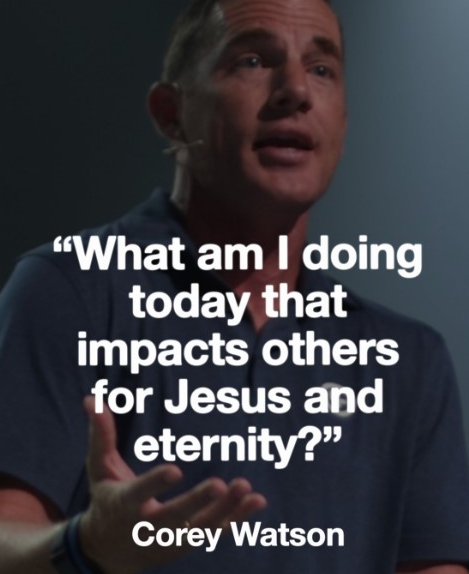Week 9 of the Book of James
It is human to plan
and to look to the future. However, Christians look to the future with a
different perspective. We pull out our calendars knowing that in every plan we
make we are ultimately not in charge. God may give us tomorrow, or next month,
or next year, or he may not. So we live in the present knowing that God is in
charge and that changes everything about tomorrow.
The Point: We must live more concerned about God’s will than our days.
James
4:13-17
13 Come now, you
who say, “Today or tomorrow we will go into such and such a town and spend a
year there and trade and make a profit” — 14 yet you do not know what tomorrow
will bring. What is your life? For you are a mist that appears for a little
time and then vanishes. 15 Instead you ought to say, “If the Lord wills, we
will live and do this or that.” 16 As it is, you boast in your arrogance. All
such boasting is evil. 17 So whoever knows the right thing to do and fails to
do it, for him it is sin.
The Holy Bible:
English Standard Version (Wheaton, IL: Crossway Bibles, 2016), James 4:13-17.
Study Notes
James now turns his
focus to “today and tomorrow” for the rest of chapter 4. His goal isn’t to tell
us how to specifically plan for today and tomorrow, but rather to find those
plans being formulated from the right foundation (God). In these 4 verses,
James points out God’s concerns should be the driving force for our plans — not
our concerns. The person who remains steadfast (1:12) is the one who alters and
plans with God at the forefront.
There’s a temptation in this passage to read James as saying we shouldn’t plan. That isn’t the case, however. James is less concerned with our specific plans and more concerned with where they originate. The person who makes plans for today, tomorrow, and years from now without any regard for God and God’s concerns, is the person who looks more like one who’s friends with this world (4:1-5) than with God.
Our world begs us
to make plans that begin and end with “me, myself, and I” in terms of concerns.
These plans look like being more concerned with my next career move, my next
house purchase, car purchase, next income bracket, next whatever else you want to
put in the blank. Notice a theme there with worldly plans? They never end,
there is always something more. James points out in verse 14, though, that the
person who makes such plans needs to realize those plans are not in their
control. You may plan for “next” from a worldly perspective, but you may not
even see the rest of the day to pursue it. We cannot even assume what will
happen today, much less tomorrow. In fact, we aren’t even guaranteed our next
breath (14b). For the Christian, we have the freedom in Jesus to not be
enslaved to such a life.
How shall we plan then? We plan with God in mind and in focus (4:15,17). We plan with “activity that is humbly dependent on God” (Platt). Make plans, have dreams, but have them rooted in the desires that honor God. These are the plans that look forward, and plan for eternity, rather than the rat race of the moment.
QUESTIONS
FOR DISCUSSION
What is the danger
in planning for days/times that aren’t guaranteed?
What does God being
in control mean for our plans?
How does God’s
sovereignty affect your view of life?
How can you make
your plans dependent upon God?
What needs to
change in your life right now to live a life dependent upon God?
Does your life
point to eternity or to this world?
How can this group
help you to depend upon God?
End
How should believers rely on God as they plan for the future?
























